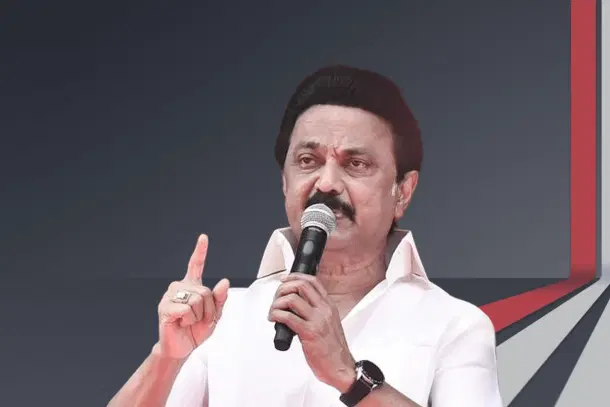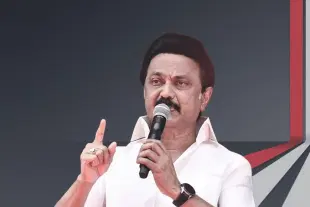News Brief
DMK Raises Electricity Tariff In Tamil Nadu, Annamalai Attacks 'Dravidian Model Of Government'
Bhuvan Krishna
Jul 16, 2024, 03:58 PM | Updated 03:58 PM IST
Save & read from anywhere!
Bookmark stories for easy access on any device or the Swarajya app.


The Tamil Nadu Electricity Regulatory Commission (TNERC) has recently announced a 4.83 per cent spike in electricity tariffs for both domestic and other consumers, effective from 1 July this year.
This adjustment is reportedly based on the consumer price inflation (CPI) and applies to both energy and fixed charges.
Opposition parties have vehemently criticised the DMK government for this tariff hike decision and some have demanded its withdrawal as well.
K Annamalai, state Bharatiya Janata Party chief, in a post on social media platform X, highlighted that the Dravida Munnetra Kazhagam (DMK) government had spent Rs 65,000 crore on purchasing electricity during the 2023-24 financial year.
He also accused the state government of passing the cost of electricity purchases onto consumers without taking steps to boost electricity generation.
Annamalai stated, "While many states are increasing electricity generation through solar energy, the DMK government continues to focus on purchasing electricity, leading to frequent tariff hikes. The DMK’s Dravidian model of government lacks basic administrative knowledge."
Tamil Manila Congress (Moopanar) president G K Vasan echoed these concerns, warning that the electricity charge increases would lead to higher prices for essential commodities and burden the common people.
Other opposition leaders such as Edappadi Palaniswami, T T V Dhinakaran, and O Panneerselvam have demanded the immediate withdrawal of the power tariff hike.
According to the new tariff order, domestic consumer slabs have seen increases ranging from 20 paise to 55 paise per unit.
For the minimum slab of 400 units bi-monthly, the cost per unit rises from Rs 4.60 to Rs 4.80. In the 401-500 unit slab, the rate increases from Rs 6.15 to Rs 6.45; for 501-600 units, it goes up from Rs 8.15 to Rs 8.55; the 601-800 unit slab sees an increase from Rs 9.20 to Rs 9.65; the 801-1000 unit slab rises from Rs 10.20 to Rs 10.70; and for consumption above 1,000 units, the tariff is set at Rs 11.80, up from Rs 11.25.
For a consumer using 500 units, the new bi-monthly charges will be Rs 2,565, compared to the previous rate of Rs 2,455.
Bhuvan Krishna is Staff Writer at Swarajya.





